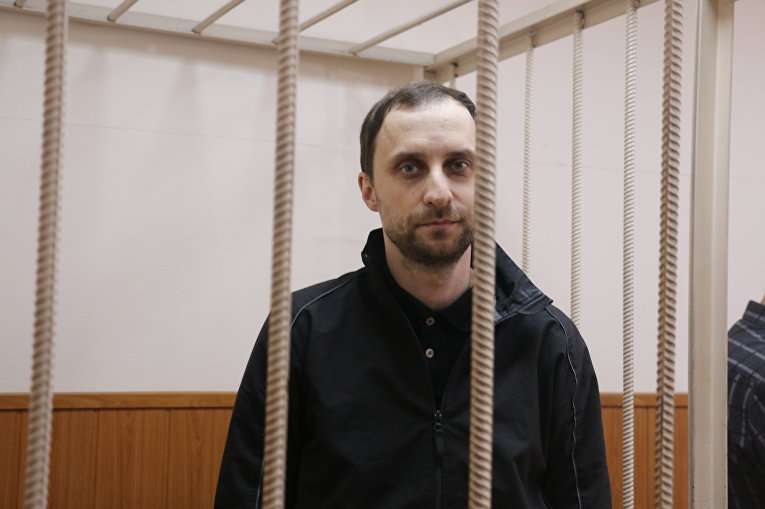MOSCOW, March 26 (RAPSI) – The Moscow City Cout is set to hear on April 21 an appeal against a 2.5-year prison sentence given in absentia to Dmitry Buchenkov for participation in the riots on Bolotnaya Square in Moscow on May 6, 2012, according to the court’s press service.
On December 24, Buchenkov was convicted and sentenced in absentia. Moscow’s Zamoskvoretsky District Cour also included the term spent in detention and under house arrest in the sentence, considered the term served and closed the search case. On December 18, a prosecutor demanded an 8-year term in penal colony for Buchenkov.
In February 2018, the Moscow City Court upheld suspension of proceedings against Buchenkov because of his disappearance. In November 2019, the trial was resumed. As reported earlier, the defendant, who was under house arrest, once failed to appear at the Bolotnaya case hearing. He was put on the international wanted list, and his house arrest was replaced with detention. The case was suspended. Prosecutors believed that Buchenkov fled to Europe.
In October 2016, final charges were brought against the defendant. He stands accused of participating in mass riots and attacking persons in a position of authority. There are 6 charge counts and 7 victims in the case against him, his lawyer Svetlana Sidorkina told RAPSI earlier.
Buchenkov pleaded not guilty. His attorneys insisted that he was out of Moscow on the day of riots. According to defense lawyers, Buchenkov has an alibi.
Initially, Buchenkov was put in jail. In March, the Moscow City Court replaced his detention with the house arrest.
Over 400 people were arrested, and scores were injured in the authorized Bolotnaya Square protest that turned violent in May 2012. Dozens were later charged with inciting mass riots and battery against law enforcement officers.
Riot organizers Leonid Razvozzhayev and Sergey Udaltsov were sentenced to 4.5 years in prison each. Other defendants in the case received prison terms ranging from suspended sentences to four years. Several defendants were pardoned; two activists were sent to compulsory mental treatment.
The convicts’ supporters believe that the riots were provoked by police.



